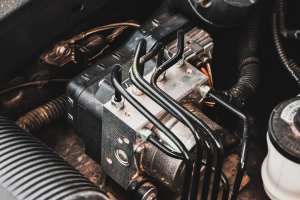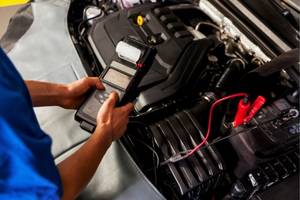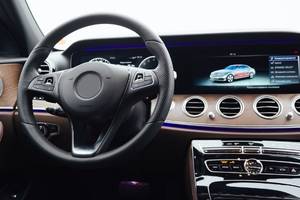Introduction
Diving right into the realm of BMW Engine Control Units (ECUs) can be complicated, especially for those new to the field. Think of the BMW ECU as the brain of the vehicle, orchestrating the harmony between several engine components to make sure peak performance. As a specialist in BMW ECUs, your role is necessary in tuning, troubleshooting, and enhancing these systems to deliver the ultimate driving experience. In this guide, we’ll navigate through the essential aspects of BMW ECU specialization, from understanding the complexities of the system to mastering best practices and advanced techniques. Whether you're an aspiring specialist or a seasoned technician looking to refine your skills, this guide will provide valuable insights into the world of BMW ECUs.
1. BMW ECU Specialization: An Overview
So, what exactly does a BMW ECU specialist do? Imagine: you're a conductor, and the BMW ECU is your orchestra—a unity of different parts working together to produce a harmonious drive. Your job is to ensure all these components communicate effectively, resulting in a smooth and efficient ride.
Being a BMW ECU specialist involves a lot more than just understanding the nuts and bolts. It's about knowing the ins and outs of the BMW engine system, fine-tuning the software, and delivering top-notch performance for every BMW car owner. It's about knowing the difference between a BMW M3 ECU and a BMW X5 ECU, and understanding how each component contributes to the overall performance.
Here are some key aspects of BMW ECU specialization:
Software Management: A BMW ECU specialist is very skilled at managing the software that controls all the electronic functions of the vehicle. This includes everything from fuel injection to braking systems.
Performance Tuning: This is where the real magic happens. As a BMW ECU specialist, you'll be able to optimise the vehicle's performance by making changes to the ECU software.
Troubleshooting: When the engine light comes on, it's showtime. You'll diagnose and fix any issues that arise, ensuring the vehicle runs smoothly and efficiently.
In essence, being a BMW ECU specialist is like being a car whisperer, making yourself aware to the subtle signals of the ECU, and responding with just the right touch. So, are you ready to tune into the rhythm of the BMW ECU? Stay tuned for our next section, where we delve into the techniques for BMW ECU specialization.
2. Techniques for BMW ECU Specialization
Let's dive into the basics of what it takes to be a BMW ECU specialist. Just like a maestro conducts an orchestra, you have to master the art of directing the various electronic systems in a BMW vehicle.
Understanding the BMW ECU System
The first technique is understanding the BMW ECU system. It's not just about knowing the technical aspects; — it's about grasping the philosophy behind the BMW design. BMW takes pride in its quality engineering and performance, and as a BMW ECU specialist, you should be able to mirror these values in your work.
Here's what you need to do:
- Study the System: Get familiar with the BMW ECU system, its components, and how they interact.
- Know the Models: Each model has its own traits. For example, the ECU in a BMW 3 series might behave differently than in a BMW 7 series. Understand these differences to excel in your role as a specialist.
Mastering ECU Software
Next up, ECU software. It's the language of the ECU, and as a specialist, you need to be fluent.
Here's how to go about it:
- Get Certified: There are specific certifications that can enhance your knowledge of BMW ECU software.
- Stay Updated: BMW evolves its ECU software regularly. Make it a habit to stay updated with the latest versions and updates.
The heart of being a BMW ECU specialist is in performance tuning. This is where you get to flex your technical muscles and really make a difference to the driving experience.
Here are some techniques:
- Understand the Variables: Know what each variable in the ECU affects, and how it contributes to the overall performance.
- Experiment: The best way to learn is by doing. Experiment with different settings and see how they affect performance.
- Monitor Results: Always monitor the effects of your tuning. This allows you to learn from your successes and mistakes.
Remember, being a BMW ECU specialist isn't just about fixing problems; — it's about enhancing the BMW driving experience. Stay tuned for the next section, where we'll explore the best practices in BMW ECU specialisation. It's going to be a thrilling ride!
3. Best Practices in BMW ECU Specialization
Rolling up your sleeves and getting into the heart of ECU tuning? Great! But remember, it's not just about getting your hands dirty. Here are some best practices that every BMW ECU specialist should follow to ensure optimal results and happy customers.
Safety First
Sure, we all love the thrill of pushing a BMW to its limits, but safety should always be a priority.
- Keep Backups: Before making any changes to the ECU, always make a backup. This can be a lifesaver in case something goes wrong.
- Test Thoroughly: After making changes, thoroughly test the vehicle in a safe and controlled environment.
Efficiency Matters
What's better than a high-performance BMW? A high-performance BMW that's also fuel-efficient! Here's how you can contribute to that as a BMW ECU specialist:
- Balanced Tuning: make efforts for a balance between performance and efficiency. Too much power can lead to excessive fuel consumption.
- Monitor Fuel Injection: Keep an eye on fuel injection rates. They can heavily influence a vehicle's fuel efficiency.
Customer Satisfaction
Last but not least, customer satisfaction should be your ultimate goal. After all, without happy customers, where would we be?
- Listen to Your Customers: Understand their preferences and expectations before starting any tuning.
- Provide Post-Tuning Support: Stay available for any questions or issues the customer might have after tuning.
There you have it! Keep these best practices in mind, and you'll be well on your way to becoming a top-notch BMW ECU specialist. But wait, there's more! Let's wrap up with some handy tips for successful BMW ECU specialisation in the next section. Stay with us!
4. Tips for Successful BMW ECU Specialization
So, you've learnt the basics of BMW ECU specialisation, and you're following best practices. Well done! But, as we all know, there's always room for improvement. So, let's dive into some tips that can help you rise above the rest in the field of BMW ECU tuning.
Keep Learning
The automotive industry is an ever-evolving beast. New technologies, new models, new challenges — they're all part of the game.
- Stay Updated: Keep up with industry trends and advancements.
- Continuous Training: Attend workshops, seminars, and training courses to expand your knowledge.
Ever tried to fix a car with a hammer and duct tape? Yeah, it doesn't work quite well. Like any other job, BMW ECU specialization requires the right tools.
- Invest in Quality: Don't compromise with the quality of the tools and software you use.
- Stay Organized: Keep your workspace tidy and your tools well-maintained.
Network, Network, Network
In the world of BMW ECU specialists, who you know can be just as important as what you know.
- Join Communities: Be part of online forums and communities for BMW enthusiasts and ECU specialists.
- Attend Events: Go to car shows, exhibitions, and other events where you can meet potential clients and other specialists.
And there you have it! With these tips in your tool belt, you're well on your way to making a name for yourself as a BMW ECU specialist. Remember, it's all about continuous learning, using the right tools, and building strong networks. Happy tuning!
Conclusion
Becoming proficient in BMW ECU specialization is more than just a technical pursuit; it’s an art that combines in-depth knowledge, precision, and a steady commitment to performance. By mastering the complexities of BMW’s ECU systems and sticking to best practices, you not only improve the vehicle’s performance but also make sure there’s a superior driving experience for BMW owners. Remember, continuous learning and staying abreast of industry developments are key to maintaining your edge in this dynamic field. Accept these challenges with enthus
FAQs on
Comprehensive Guide to BMW ECU Specialist in 2025 : Best Practices
-
1. What does a BMW ECU specialist do?
Ans.
A BMW ECU specialist is responsible for managing, tuning, and troubleshooting the engine control units in BMW vehicles. They make sure that all electronic components communicate effectively, enhancing performance and addressing any issues that arise.
-
2. How does one become a BMW ECU specialist?
Ans.
Becoming a BMW ECU specialist generally involves gaining relevant automotive engineering qualifications, obtaining certifications in ECU software, and gaining hands-on experience with BMW vehicles. Continuous education and staying updated with the latest ECU technologies are also necessary.
-
3. What are the common issues a BMW ECU specialist might encounter?
Ans.
Common issues include engine misfires, poor fuel efficiency, and malfunctions of several electronic systems like braking or transmission controls. Diagnosing and fixing these issues requires a deep understanding of both the hardware and software aspects of the ECU.
-
4. How can BMW ECU tuning affect vehicle performance?
Ans.
BMW ECU tuning can significantly improve vehicle performance by enhancing engine parameters such as fuel injection, ignition timing, and boost levels. Proper tuning can improve acceleration, power output, and overall driving dynamics while balancing fuel efficiency.
-
5. What tools are essential for a BMW ECU specialist?
Ans.
Essential tools include diagnostic scanners, ECU programming devices, and performance tuning software. High-quality tools and equipment are necessary for accurate diagnostics and effective tuning.
-
6. How often should BMW ECUs be serviced or updated?
Ans.
BMW ECUs should be serviced or updated as needed, especially if there are performance issues or after significant modifications. Regular maintenance and staying updated with software revisions from BMW are recommended to make sure ideal performance and reliability.


